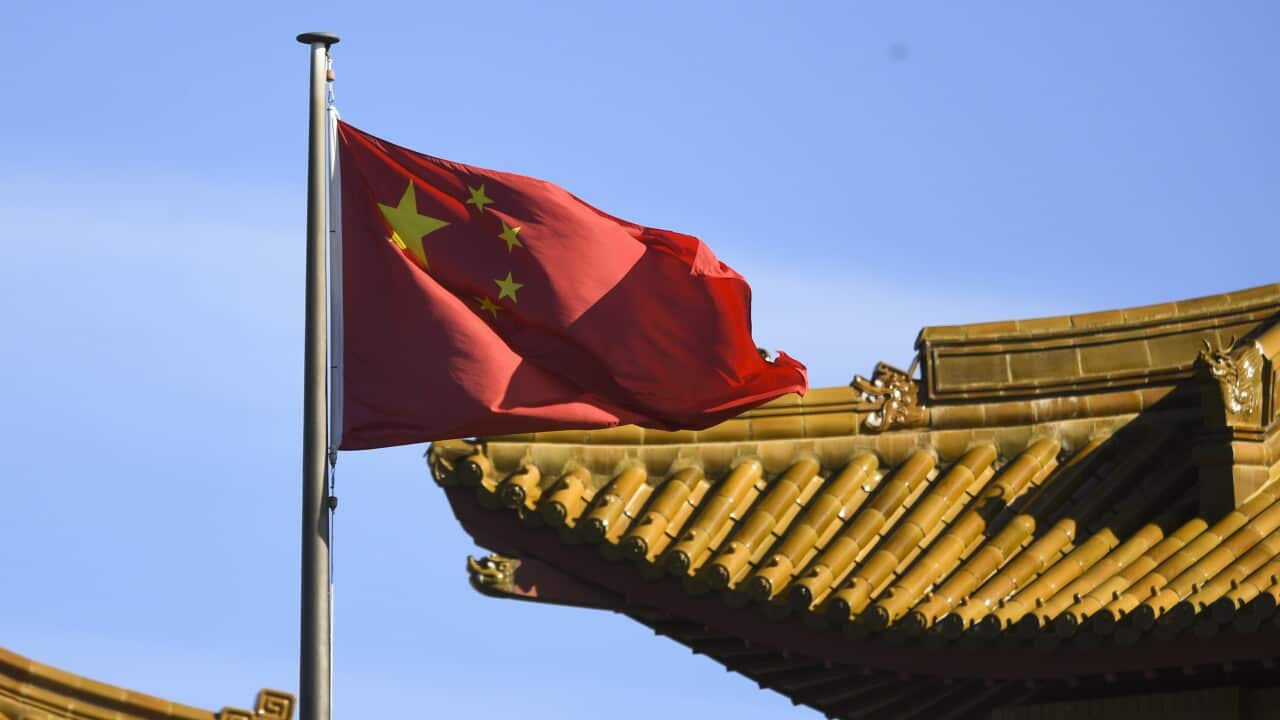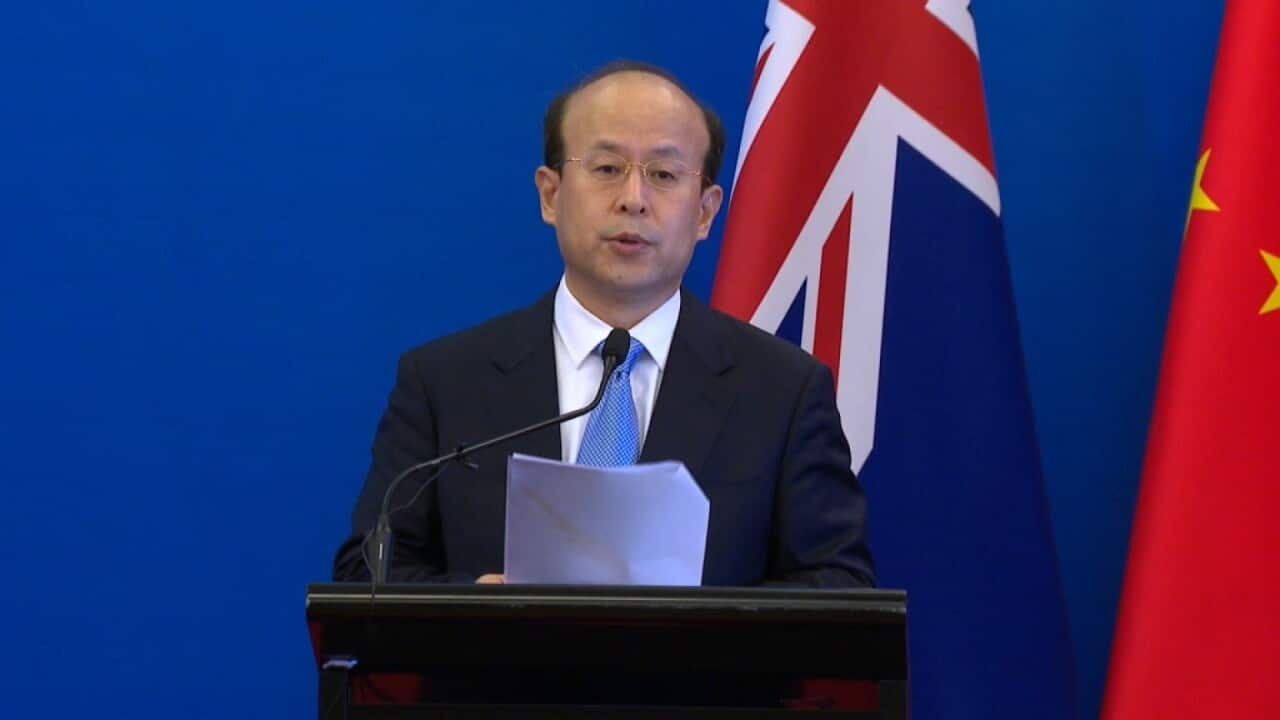China views Saturday’s federal election as a chance to reset relations with Australia, according to a senior diplomatic source, who has signalled Beijing would be open to pursuing fresh talks with whichever party wins the upcoming poll.
The Chinese diplomatic source revealed to SBS News that post-election was a “good opportunity” to ease tensions, with both sides at an impasse over repairing their strained relations.
But the source - who did not wish to be named - did not detail what action, if any, Beijing would be willing to take towards opening channels of diplomatic dialogue.
“We are genuine in our wish to improve the relationship - we think the formation of a new government offers a good opportunity,” the source said.
The source also rejected a claim by Defence Minister Peter Dutton that a on 13 May was an aggressive act.
“It is nothing to be worried [about],” the source said.
“There is no animosity that should be interpreted in such a presence of a ship in the exclusive economic zone of Australia.”
Diplomatic relations between China and Australia have soured in recent years under the Coalition, with the Australian officials raising concerns over Beijing's trade sanctions against a range of Australian goods, its build-up in the South China Sea, a crackdown on dissent in Hong Kong as well as allegations of human rights abuses in Xinjiang.
China’s signing of a security agreement with Solomon Islands in April during the election campaign has also become a flashpoint issue, sparking debate over Beijing’s rise in the region.
The comments from the Chinese diplomatic source mirror similar recent statements from China’s ambassador Xiao Qian, who recently called for a reset to diplomatic relations.
Sam Roggeveen, director of the international security program at the Lowy Institute, said the comments appeared to be an invitation from the Chinese embassy for Australia to “take the initiative here”.
But he said both the Coalition and Labor had so far shown “no hurry to take up that invitation” during the election campaign.
“Both sides basically agree that though their door remains open to Beijing and its representatives here in Canberra - that it is up to China to take the initiative,” he told SBS News.
Mr Roggeveen also said Mr Dutton’s comments had “overreached” in his description of China’s intelligence-gathering vessel, which did not enter Australia’s maritime waters.
But he said “accidents can happen" and "tensions can rise” as a result of this behaviour, which he said: “Australia should expect to see much more of.”
Relationship with China at an impasse
Opposition leader Anthony Albanese was asked by SBS News at the National Press Club on Wednesday about the potential for China to seek fresh talks at some level.
“I think that the relationship between Australia and China will remain a challenging one regardless of who wins the election,” he said.
“The first thing I’ll be doing is meeting with our allies, meeting with [US] President Biden, meeting with [Japanese] Prime Minister Kishida, meeting with [Indian Prime Minister] Narendra Modi."
Prime Minister Scott Morrison told SBS Radio on Monday he would be “very happy” to enter into dialogue with China’s leadership if he was victorious on polling day.
But he added that an opportunity that “hasn’t been extended” to the Coalition at the moment - a recognition of the diplomatic freeze from Beijing at the ministerial level of Australia’s government.
“I look forward to a time when we can be engaging again, (and) we will continue to work towards that goal,” the prime minister said.
“But that will never happen at the expense of Australian sovereignty, or our important liberties and freedoms.”
In a recent foreign policy debate, both Foreign Minister Marise Payne and Labor’s foreign affairs spokesperson Penny Wong said Australia would not bow to pressure in the face of a more assertive China.
Senator Payne said Australia would continue to seek a constructive relationship with China, but would always put its national interest first.
"It has to be a relationship in which our sovereignty and our interests are respected and in which no party is coerced or subjected to pressures that breach international rules," Senator Payne said.
Senator Wong said China needed to desist from coercive economic measures against Australia to start repairing the bilateral relationship.
"Our relationship with China has changed because China has changed and we should start from that premise," she said.











